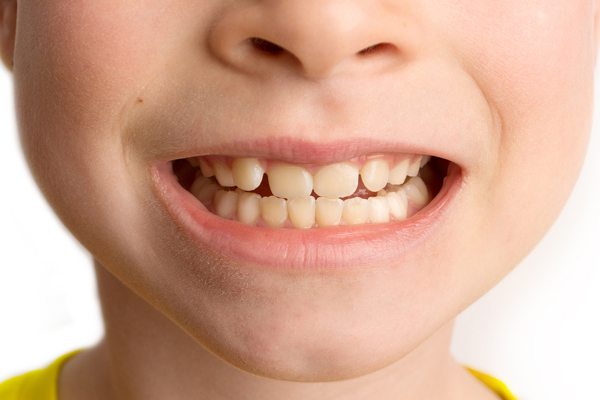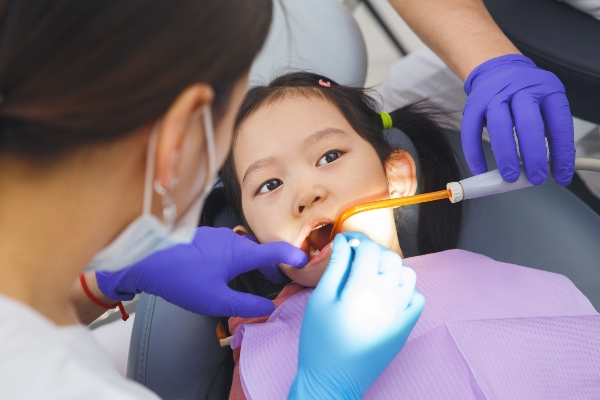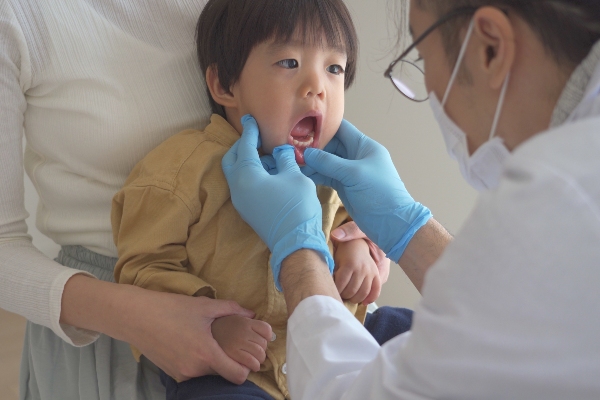When Oral Sedation Is Used in Pediatric Dentistry

A significant aspect of pediatric dentistry is managing the behavior and anxiety of child patients. Pediatric dentists undergo training for this purpose, as they need to be good with kids to succeed in this field.
A children’s dentist will use various tools to get their patient to cooperate for the duration of a procedure. One of these tools is sedation. Here, we go over scenarios in which the dentist can use sedation dentistry in general and oral sedation in particular.
Behavior management in pediatric dentistry
A child’s experiences with a dentist will determine their attitude toward dental visits as adults. Bad experiences could create an adult who avoids the dentist for as long as possible. A person who has good childhood experiences with the dentist will seek dental care as soon as they need it. Timely dental care contributes to good oral health, so the child who grows up without a phobia of the dentist is likely to have excellent oral health. Pediatric dentists keep these truths in mind, which is why they will employ the following tools to put their young patients at ease:
- A child-friendly environment that incorporates décor, play areas, toys, coloring books, and friendly staff
- Making a role-playing game out of the procedure via the tell-show-do paradigm
- Positive reinforcement
- Voice control
- Parental presence
- Distraction
- Non-verbal communication
The dentist may use a combination of these tools to direct and control a child’s behavior. However, young patients who deal with anxiety will not always respond to these fairly conservative measures. They may require mild, moderate, or deep sedation.
Different levels of sedation for children
A kids’ dentist accounts for their patient's personality as they choose the most suitable way to manage the child’s behavior. Children with a mild case of anxiety are candidates for laughing gas, combined with other behavior management tools. Laughing gas, or nitrous oxide, leaves the patient conscious and aware of their surroundings while mitigating their anxiety.
A child who is inflexible, anxious, and uncooperative will need a deeper level of sedation. Oral sedatives take it up a notch by depressing the child’s consciousness. The resulting deep sedation keeps the young patient fairly unresponsive, barring repetitive or painful stimulation.
This level of sedation has little to no effect on the function of the cardiovascular system. However, the pediatric dentist will have to keep a close eye on the patient’s airway and ensure that it remains clear until the child regains full consciousness.
How a pediatric dentist determines a good candidate for oral sedation
A pediatric dentist will likely recommend oral sedation for a young child who needs a long, intensive procedure. They will also favor a deeper level of sedation for children who are too young to understand what is happening during the procedure.
The pediatric dentist will ensure that a potential candidate for oral sedation is healthy enough to withstand the sedatives. They will consult with the child’s physician to prevent the interaction of sedatives and any medication that the patient may be on. The dentist will also make sure their patient is free of cardiovascular and respiratory problems that could cause complications.
Frequently asked questions about pediatric dentistry
Children are not born knowing how to take care of their developing teeth and gums, so here are answers to common questions regarding a child's dental health.
How can I prevent cavities from forming on my child’s teeth?
The best way to prevent cavities is to have the child brush and floss their teeth regularly. Parents should also take them to the dental clinic every six months for teeth cleanings and checkups. Preventative treatments like dental sealants are quite useful too.
My child is terrified of going to the dentist. What can I do?
Parents can do a few things to help ease their child's fears. First, they can look for a pediatric dentist who specializes in working with children. They can also talk to their child about what they can expect during their appointment, trying to be as positive as possible. Finally, parents can bring their kids to their own dental appointment so they can see that there is nothing to be afraid of.
What is dental sealant and does my child need it?
Dental sealant is a thin, transparent coating applied to the back teeth to help prevent cavities. It is usually recommended for children who have a high risk of developing cavities, such as those who do not brush and floss regularly or have a family history of cavities.
I think my child has a cavity. What should I do?
If parents think that their child has a cavity, the best thing to do is schedule an appointment with the dentist so it can be checked out. A cavity can be treated with a dental filling, which will help restore the tooth and form a barrier preventing the cavity from expanding further.
We keep our young patients comfortable all through their treatment
Our practice near Middletown can take care of your child’s oral health needs. Reach out to us to book an appointment with our pediatric dentist and learn more about sedation dentistry for kids.
Request an appointment here: https://www.hvkidsmiles.com or call Hudson Valley Pediatric Dentistry at (845) 363-4177 for an appointment in our Middletown office.
Check out what others are saying about our services on Yelp: Read our Yelp reviews.
Recent Posts
A child dentist can help your child achieve better dental and general health. Regular visits allow your child to get used to dental checks, tools, and equipment. Dental fear disappears, and the young patient can continue having a bright, painless smile. Here are what parents like you should look forward to during child dentist appointments.Choosing…
Cavity treatment for kids is essential for a child’s oral health. Dental decay can cause discomfort, causing the child to lose focus at school. It can even result in low self-esteem and malnutrition. Treating cavities can improve your child’s general health. Here are effective techniques for cavity treatment for kids.There are cases when fillings cannot…
Parents play a crucial role in their children's tooth care by ensuring their children get started on the right path to optimal dental health. This involves overseeing children's tooth care at home while also helping them develop healthy dental habits and ensuring they see a pediatric dentist regularly.Parents will need to keep their child's mouth…
Just like adults, children need preventive dental care — that is where pediatric dentistry comes in. Many parents believe that their child's teeth are healthy simply because their child is young. The truth is that oral health issues are as prevalent in kids as much as adults. Since they love sugary treats, the risk of…


